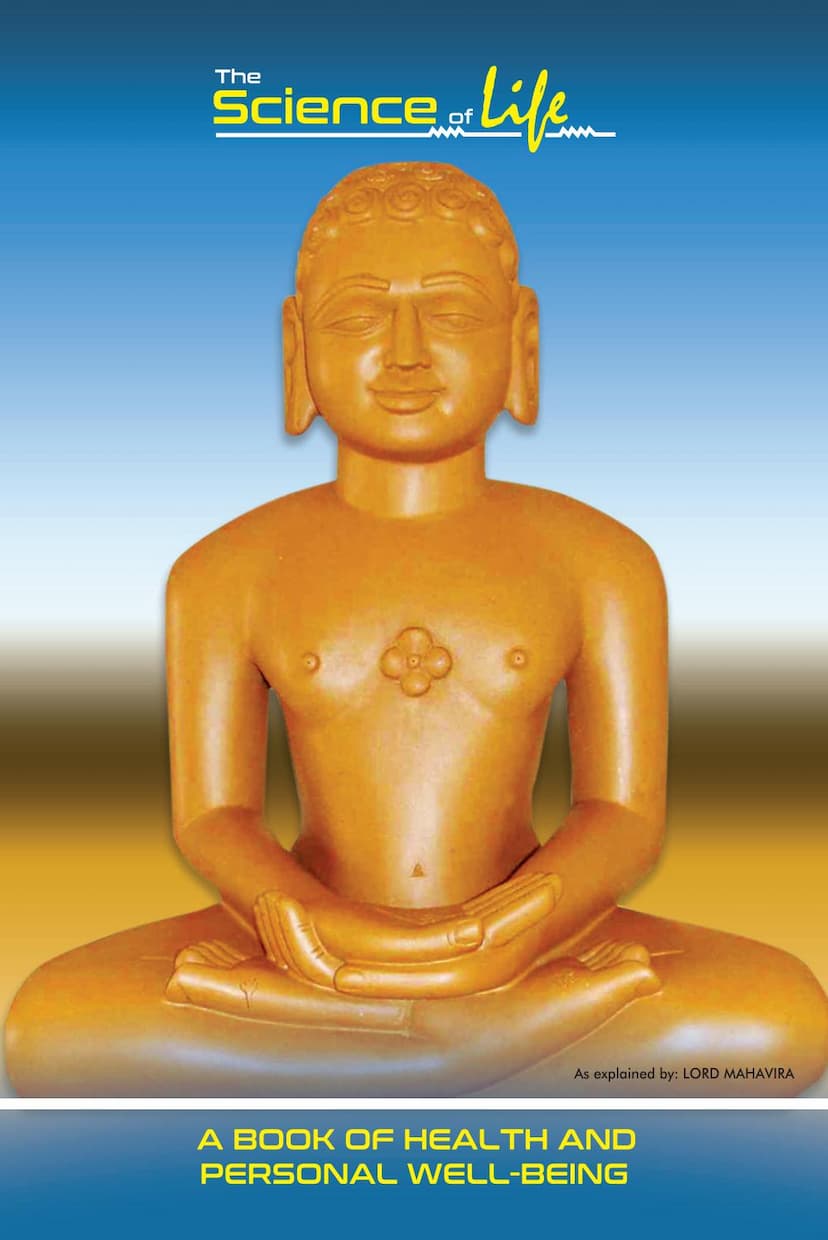Science Of Life
Added to library: September 2, 2025

Summary
Here is a comprehensive summary of the Jain text "Science Of Life" by U.S. Dugar, based on the provided excerpts:
"The Science of Life" by U.S. Dugar, as explained by Lord Mahavira, is a comprehensive guide to health and personal well-being, rooted in the teachings of Jainism. The book posits that Lord Mahavira's teachings offer a scientific explanation of life's nature and meaning, providing practical guidance on how to live in accordance with these principles. It emphasizes Jainism as a discipline and a process for self-realization rather than a rigid belief system, highlighting Lord Mahavira as a profound spiritual genius and thinker.
Core Principles and Philosophy:
- Non-violence (Ahimsa) as Supreme: The book repeatedly stresses that non-violence is the foundational principle, extending beyond human life to encompass all living beings, including plants. This is presented as a scientific approach to minimizing karmic bondage and achieving spiritual well-being.
- Self-Control and Penance (Tap): Self-control over senses, mind, speech, and possessions is presented as crucial for purification. Penance, understood as an "inner fire," purifies the soul from accumulated karmas and leads to spiritual strength and transformation.
- Scientific Basis of Jain Practices: The book argues that many Jain practices, often perceived as mystical, are supported by modern scientific understanding. Examples include the avoidance of night-time eating due to microorganisms, the benefits of fasting for detoxification, and the importance of proper chewing for digestion.
- Nature's Laws and Harmony: Jainism is presented as being deeply rooted in nature's laws and a dynamic appreciation of them. Living in harmony with nature, simplicity, contentment with little, and frugality are emphasized for health and well-being.
- Self-Reliance and Personal Responsibility: Individuals are encouraged to realize and verify truths through their own experience rather than blind faith. The book highlights that one is responsible for their own destiny and actions (karma).
- Purity of Body, Mind, and Soul: The teachings aim at inward cleaning and personal purification, leading to emotional upliftment, mental clarity, and spiritual advancement.
Key Themes and Practices Discussed:
- Physical Fitness: Jain ascetics' practices, such as not bathing or using toothbrushes, are explained in the context of self-control and reducing violence. Their health is attributed to controlled eating, fasting, and a resistant lifestyle.
- Dietary Laws and Their Rationale:
- Strict Vegetarianism: Avoiding meat, honey, and root vegetables (like potatoes, onions) is explained by the principle of minimizing violence to plants and the microorganisms around their roots.
- Daytime Eating: Eating and drinking only between sunrise and sunset is linked to digestive efficiency, metabolism, and avoiding harm to nocturnal organisms.
- Avoiding "Vigay": The restriction on certain foods like sugar, milk products, oil, and meat is explained by their potential to stimulate passions, lead to vices, and affect mental clarity.
- Food Preparation and Consumption: Emphasis is placed on conscious eating, proper chewing, eating bland foods, and avoiding mixing incompatible food items to aid digestion and prevent fermentation.
- Water Purity: The practice of drinking only boiled or treated water is explained as a measure to avoid violence to sentient beings within the water and prevent diseases.
- Breathing and its Significance: Slow, deep, abdominal breathing is highlighted as vital for energy, health, and even life expectancy. It's linked to oxygen supply to cells, preventing diseases like cancer, and regulating the nervous system.
- Penances (Physical and Mental):
- Physical Penances: These include fasting, reducing food intake (Unodari), abstaining from delicacies, withdrawal from senses, bodily austerities (endurance of hardship like heat and cold), and steadiness (maintaining postures). These are presented as means of physical detoxification, building willpower, and reducing attachment.
- Mental Penances: These involve penitential retreat (introspection and confession), humility, service to others, Swadhyaya (self-study and analysis), meditation, and solitude. These aim to purify the mind, conquer ego, develop compassion, and gain spiritual knowledge.
- Purity of Mind: Overcoming negative emotions like fear, anger, pride, deceit, and greed is crucial for mental and spiritual purity, which in turn affects physical health. Mahavira's own life is presented as an example of fearlessness and self-mastery.
- Wisdom and Knowledge: The pursuit of knowledge, especially self-knowledge, is central. Jainism emphasizes rational faith (seeing truth for oneself) and right conduct as the path to liberation. Omniscience is presented as the soul's inherent potential, obscured by karmas, but attainable through purification.
- Independence and Spirituality: Human birth is considered a rare and precious opportunity for spiritual evolution. Spirituality is defined as self-realization, understanding one's true identity as a soul distinct from the body and mind, and living in harmony with nature's laws.
- Karma and Liberation: The doctrine of karma explains the cycle of birth, death, and suffering. Liberation (Moksha) is achieved by annihilating karmas through self-control, austerities, right knowledge, right faith, and right conduct.
- The Art of Dying (Shalekhana): Jainism teaches a voluntary and conscious process of renouncing the body through controlled fasting and detachment, not as suicide but as a spiritual practice to purify the soul and break the cycle of rebirth.
In essence, "The Science of Life" presents Jainism as a holistic system for achieving physical health, mental peace, and spiritual liberation by understanding and applying universal principles of non-violence, self-control, and living in accordance with natural laws, all stemming from Lord Mahavira's profound insights.